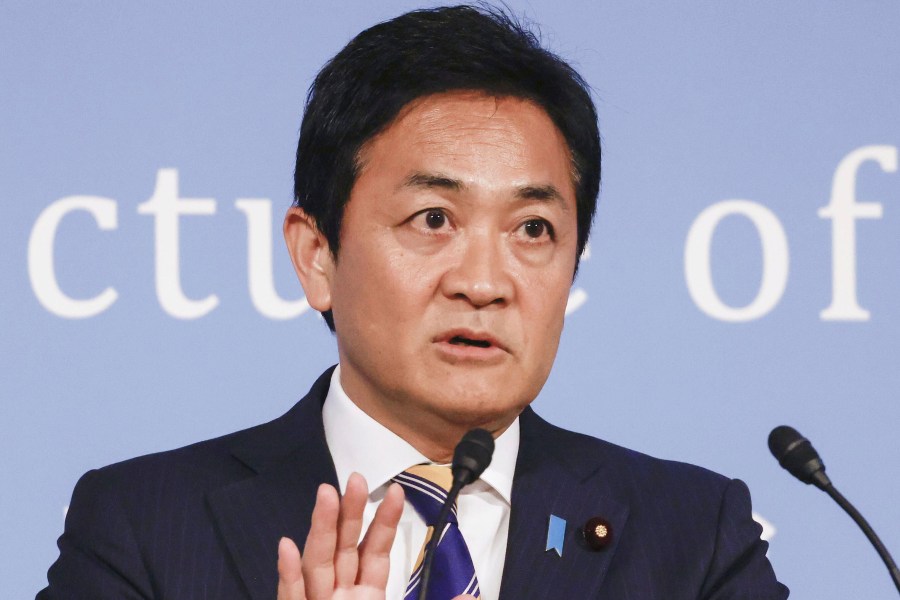TOKYO — Japan’s Prime Minister Shigeru Ishiba is bracing for a critical test as the country heads into an upper house election on July 20. This election comes on the heels of a significant setback in last year’s snap election, where his minority government suffered a major defeat. As official campaigning kicks off on Thursday, Ishiba faces the dual challenge of navigating domestic economic issues and addressing global pressures, including U.S. President Donald Trump’s tariff policies.
The election is set to decide half of the 248 seats in the upper house, Japan’s less powerful parliamentary chamber. Ishiba’s Liberal Democratic Party (LDP), along with its coalition partner Komeito, requires a simple majority to maintain control. This means securing 50 seats in addition to the 75 they currently hold. Despite the modest target, Ishiba acknowledges the stakes, stating, “I am fully aware that I must solemnly accept voters’ judgment.”
Ishiba’s Modest Goals Amid Political Challenges
Ishiba has set a straightforward goal: achieving a simple majority. This objective, however, represents a retreat from the coalition’s current standing of 141 seats. While a poor result might not immediately topple the government, it could instigate a leadership change within the LDP or prompt a realignment of the governing coalition.
The backdrop to this election is the fractured state of Japan’s opposition. The LDP’s previous defeat was largely attributed to its traditional supporters shifting their votes to centrist and conservative opposition groups, frustrated by corruption scandals. The main opposition parties, including the Constitutional Democratic Party of Japan (CDPJ) and the Democratic Party for the People (DPP), have gained traction but remain divided.
Opposition Dynamics and Potential Coalition Shifts
Despite their gains, the opposition parties have struggled to present a unified platform. Speculation about a trilateral coalition involving the DPP or the Japan Innovation Party has surfaced, but cooperation has been limited to certain legislative efforts. A loss for Ishiba’s party could reignite discussions about coalition restructuring.
CDPJ leader Yoshihiko Noda has argued that a loss of majority in both houses could empower the opposition to advance policies currently stalled by the LDP, such as reducing the consumption tax.
Economic Concerns and Global Pressures
Economic issues are at the forefront of voters’ minds, with rising prices, stagnant wages, and social security burdens taking center stage. Ishiba’s government has faced criticism for its handling of these challenges, particularly the recent rice crisis, which saw prices double due to supply shortages and distribution complexities.
The crisis led to the resignation of a farm minister, but his successor, Shinjiro Koizumi, implemented decisive measures, including releasing emergency rice reserves to stabilize prices. These actions may play a crucial role in swaying voter sentiment ahead of the election.
Trade Tensions with the United States
Adding to Ishiba’s challenges are trade tensions with the United States. President Trump has expressed dissatisfaction with Japan’s progress in trade negotiations, specifically criticizing the country’s reluctance to purchase American automobiles and rice. These issues have put additional pressure on Ishiba to demonstrate effective leadership on the global stage.
In response, Ishiba’s party has proposed a campaign platform that includes cash payouts to mitigate the impact of inflation and wage stagnation. However, opposition parties have dismissed these measures as insufficient, with the CDPJ advocating for increased welfare spending and the DPP focusing on raising wages.
Looking Ahead: Implications and Future Prospects
The outcome of the upcoming election will have significant implications for Japan’s political landscape. A successful result for Ishiba could consolidate his leadership and provide a mandate to address both domestic and international challenges. Conversely, a setback could lead to political instability and potential shifts in the coalition dynamics.
As Japan approaches this critical juncture, the election will serve as a barometer for public sentiment on Ishiba’s handling of economic and global issues. The results will likely shape the country’s political direction in the coming years, influencing policy decisions and international relations.
 Dalai Lama Affirms Continuation of Spiritual Lineage Amidst Chinese Tensions
Dalai Lama Affirms Continuation of Spiritual Lineage Amidst Chinese Tensions Rwanda’s Influence Over M23 Rebels in Eastern Congo Unveiled by UN Report
Rwanda’s Influence Over M23 Rebels in Eastern Congo Unveiled by UN Report Trump Casts Doubt on US-Japan Trade Deal Amid Tariff Tensions
Trump Casts Doubt on US-Japan Trade Deal Amid Tariff Tensions Iran Halts Cooperation with UN Nuclear Watchdog Amid Rising Tensions
Iran Halts Cooperation with UN Nuclear Watchdog Amid Rising Tensions Hamas Open to Ceasefire with Israel Amid Demands for War’s End in Gaza
Hamas Open to Ceasefire with Israel Amid Demands for War’s End in Gaza